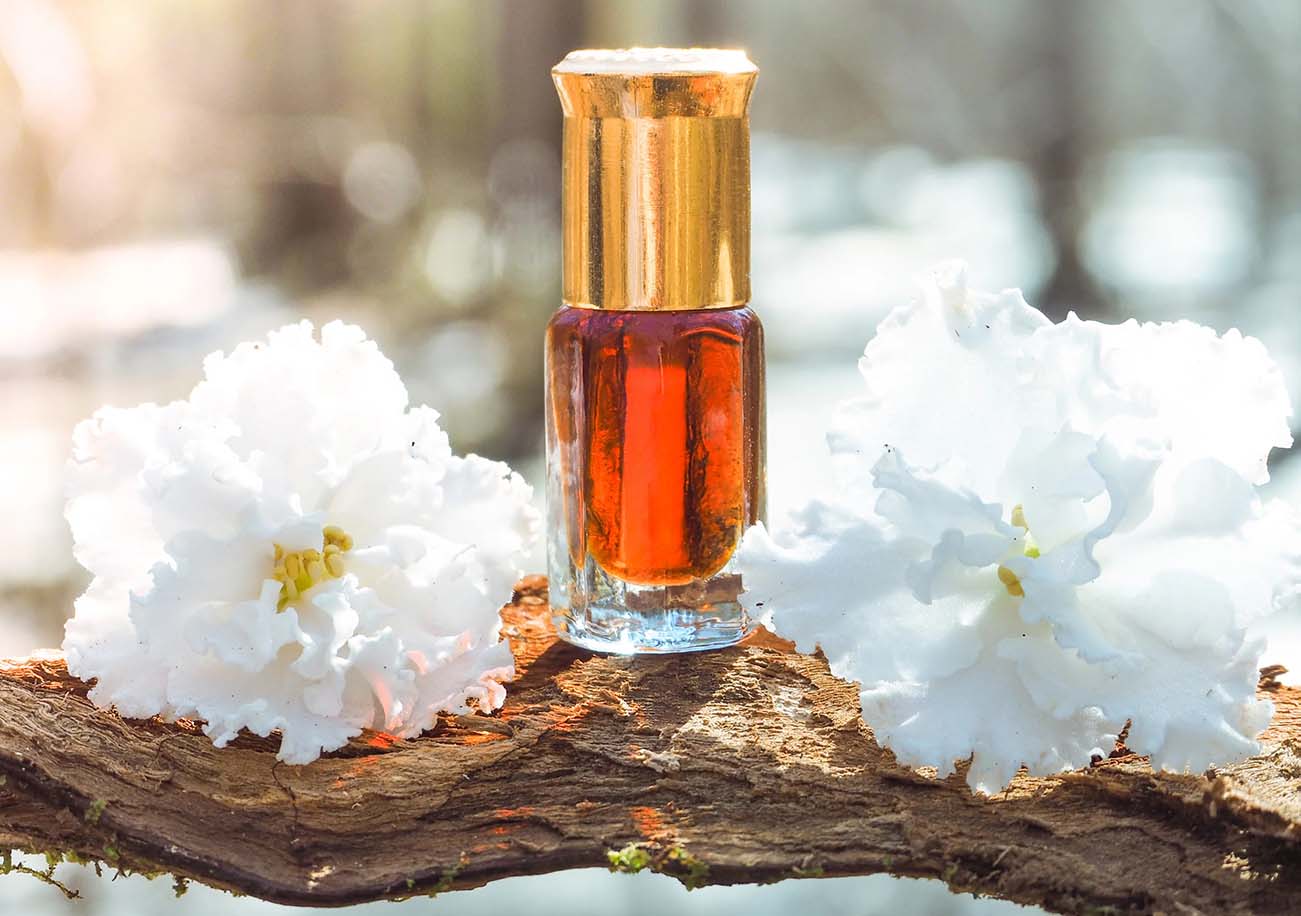Fragrance has the remarkable ability to evoke memories, stir emotions, and even influence our mood. For centuries, people have used scents not just for their aromatic qualities but for their healing effects. The relationship between perfume and emotions is not just an olfactory experience but a profound psychological one. Scents can soothe, energize, calm, or even invigorate us—sometimes, without us even being aware of it.
The Science Behind Scents and Emotions
Before diving into the specific scents and their effects, it’s important to understand the science behind how fragrance affects our emotions. The sense of smell, also known as olfaction, is closely linked to the limbic system—the part of the brain responsible for emotions, memory, and behavior. When we smell something, the olfactory receptors send signals directly to the limbic system, bypassing the thalamus, which processes most of our other sensory information. This direct connection explains why certain scents can trigger powerful emotional reactions almost instantly.
Furthermore, our emotional responses to scents are not entirely subjective; research has shown that certain aromas are consistently associated with specific feelings. For instance, the scent of lavender is known to induce calmness and relaxation, while citrus fragrances tend to uplift and energize. The power of fragrance goes beyond mere preference—it can be an emotional and psychological tool for healing.
1. Lavender: The Scent of Calm and Relaxation
Lavender is one of the most widely known and beloved scents in the world of aromatherapy. Known for its calming and soothing properties, lavender is often used to relieve stress, anxiety, and even insomnia. The gentle, floral aroma of lavender has been shown to lower cortisol levels—the stress hormone—making it an ideal scent for moments when you need to relax or unwind after a hectic day.
Lavender has been shown in studies to reduce heart rate and promote feelings of tranquility. It’s no surprise that many sleep aids, both natural and synthetic, contain lavender or its extracts. Whether it’s in a bottle of perfume, a candle, or a sachet tucked in your pillowcase, lavender is a go-to for emotional healing when you need to de-stress and find inner peace.

2. Citrus Scents: Invigoration and Upliftment
Citrus fragrances, such as lemon, orange, and grapefruit, are known for their invigorating and mood-lifting effects. These scents are often associated with freshness, energy, and renewal. Citrus is a popular choice for perfumes and colognes, not just for its refreshing aroma, but for its ability to lift the spirits.
Research has shown that the scent of citrus can help reduce feelings of fatigue and increase mental clarity. Inhaling citrus fragrances has been linked to reduced levels of depression and anxiety. Whether it’s the tangy burst of lemon or the sweet, zesty notes of orange, these fragrances work wonders when you need a mood boost or to overcome a mental block. Their fresh, bright, and lively qualities make them the perfect remedy when you feel overwhelmed or sluggish.
3. Rose: The Fragrance of Love and Comfort
The timeless scent of rose has been cherished for centuries, often associated with love, romance, and beauty. However, its emotional effects go beyond just romantic connotations. Rose is often used in aromatherapy for its ability to soothe emotional wounds, alleviate grief, and restore a sense of balance.
The floral notes of rose are known to have a comforting effect, which is why it’s frequently included in perfumes designed to promote emotional well-being. The soft, sweet aroma of rose can help calm the nerves, ease feelings of sadness or anxiety, and provide emotional support during challenging times. Its ability to evoke feelings of love, compassion, and warmth makes it a go-to fragrance for those seeking emotional healing and self-care.
4. Sandalwood: Grounding and Centering
Sandalwood, with its rich, woody, and slightly creamy fragrance, is often considered a grounding scent. It has a calming effect on the mind, body, and soul. In many Eastern cultures, sandalwood is used in meditation practices to promote mental clarity and focus. The scent is thought to deepen one’s sense of inner peace, helping to quiet the mind and facilitate spiritual connection.
Psychologically, sandalwood is known to be helpful in reducing feelings of anxiety and stress. Its grounding nature makes it ideal for people who feel scattered, restless, or overwhelmed. The earthy aroma can create a sense of balance and stability, encouraging calmness and mindfulness. Sandalwood is often found in perfumes used for meditation or relaxation, and its therapeutic effects are particularly helpful for those dealing with emotional turbulence or a lack of direction.

5. Jasmine: The Scent of Joy and Confidence
Jasmine is another fragrance that has long been celebrated for its powerful emotional effects. Known for its sweet, exotic, and slightly intoxicating scent, jasmine is often associated with feelings of happiness, confidence, and sensuality. It is said to be a natural mood enhancer, often used to combat depression and anxiety.
Jasmine has a unique ability to elevate one’s mood, increase feelings of positivity, and promote a sense of self-assurance. Its uplifting aroma can help alleviate feelings of sadness and replace them with feelings of joy and vitality. Jasmine is also believed to stimulate creativity and open the heart to love and compassion, making it an excellent choice for people in need of emotional rejuvenation.
6. Vanilla: Comfort and Warmth
The warm, sweet scent of vanilla is universally comforting and often associated with feelings of safety, nurturing, and emotional warmth. It’s no surprise that vanilla is a common ingredient in perfumes designed to evoke comfort and relaxation. The scent of vanilla has been shown to lower anxiety levels and create a sense of calm, making it an ideal fragrance for those dealing with stress or emotional fatigue.
Beyond its calming effects, vanilla has a nostalgic quality that can remind people of happy memories, such as family gatherings or childhood moments. This sense of familiarity and comfort can have a powerful impact on emotional healing, particularly for those who are dealing with grief or a sense of emotional loss.
7. Patchouli: The Scent of Balance and Healing
Patchouli is often considered an earthy, sensual scent with balancing properties. Its deep, musky fragrance has been used for centuries in both perfumes and traditional healing practices. Patchouli is known for its grounding effects, promoting emotional stability and mental clarity.
The scent of patchouli can help release negative emotions and foster a sense of renewal. It is often used to help people who are feeling emotionally drained or disconnected from themselves. The fragrance of patchouli can stimulate the mind, alleviate feelings of stress, and restore a sense of emotional equilibrium.
The world of fragrance is not just about the allure of a beautiful scent; it is deeply intertwined with our emotions, memories, and mental well-being. Perfumes and essential oils have the power to heal, uplift, and balance our emotions in ways that are often subtle but profound. From the calming effects of lavender to the energizing power of citrus, each scent holds its unique ability to influence our mood and overall emotional health.
Incorporating fragrance into your daily routine, whether through perfumes, candles, or essential oils, can be a powerful tool for emotional self-care. Whether you’re seeking calm, comfort, confidence, or clarity, the healing power of scent can provide the emotional support you need to navigate life’s ups and downs. So, next time you choose a fragrance, consider its emotional potential and let it guide you toward the emotional healing you need.



